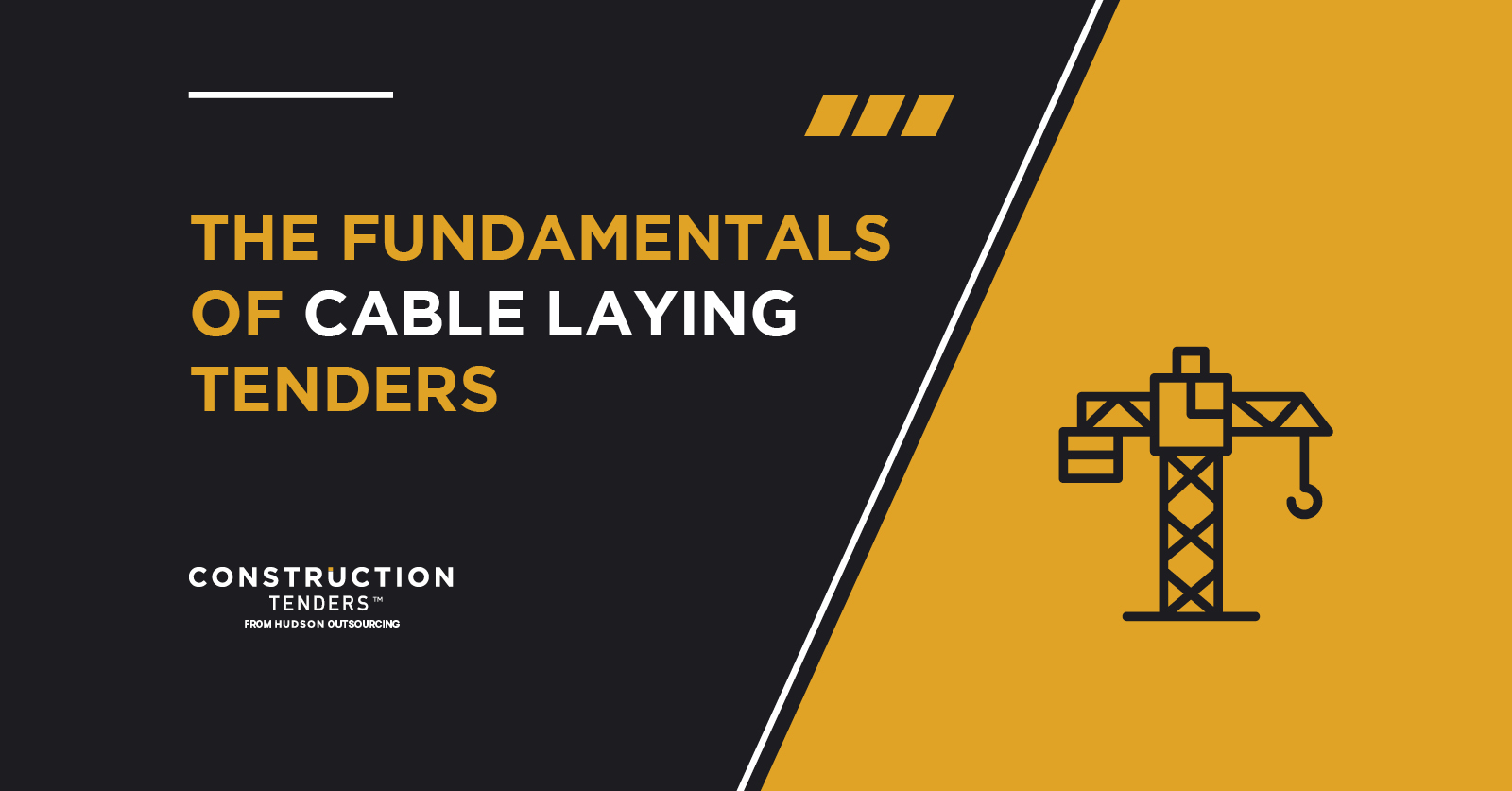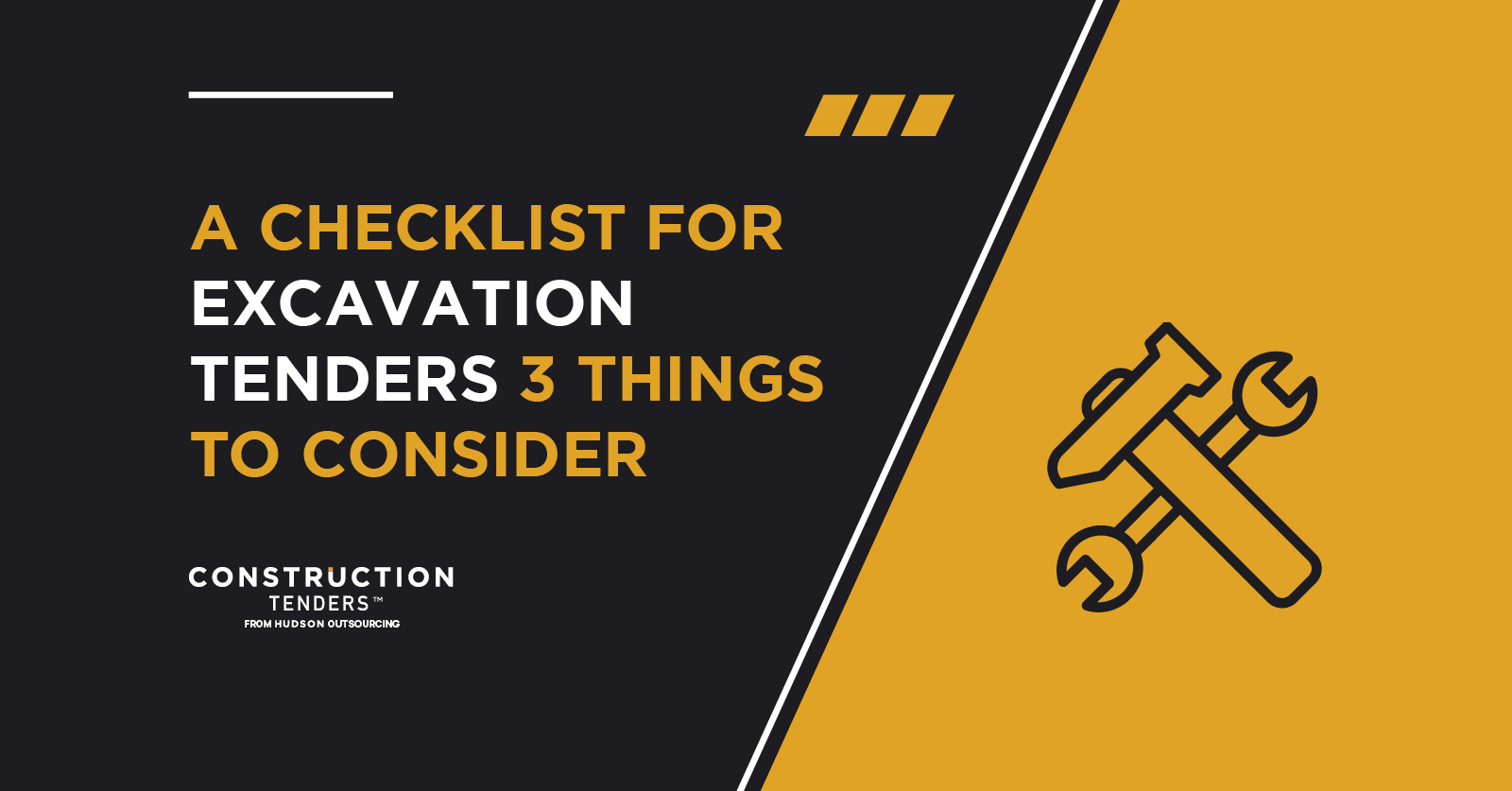How to succeed with cable laying tenders
Cable laying tenders can seem daunting if you have never completed one before. Those who have tendered for construction contracts in the UK before know what a minefield it can be. Cable laying tenders are often released by businesses that are looking for the supply, replacement, and installation of cables. They could be required for residential properties, office buildings or hospitals to name a few.
COVID-19 has led to a steep increase in businesses across the board turning to tendering to secure a pipeline of work. While social distancing is still in play, tendering allows you to grow your business without the need for face-to-face meetings.
There are multiple benefits for choosing tendering as a route for your business to go down. Bidding for cable laying tenders in the public sector, there can offer multiple advantages. For example, if successful, you are guaranteed pay due to the regulations public sector organisations are bound by. The Prompt Payment Code must be adhered to which can give businesses a steady form of income. However, it’s worth bearing in mind that the private sector is not bound by these rules.
Open tendering procedure
More often than not, cable laying tenders will be an open tendering procedure. An open tendering procedure is often used within the public sector. It’s a process that’s commonly used as it is fairly straightforward.
ITT
Typically, a buyer will release an invitation to tender, known as an ITT. In an open tendering procedure, when an ITT is released, any prospective suppler can respond. Each supplier should aim to convey and persuade the buyer that they are the best business for the job.
MEAT
Once all bids have been submitted, the buyer reviews all the responses and will make their decision. The tender will then be awarded to the most economically advantageous tender, known as the MEAT. A buyer will have evaluated both the price and quality of each of the cable laying tenders. For MEAT, the buyer is looking at more than just price. It’s important to note the cheapest bid does not always win. A buyer assesses multiple aspects of a bid, this could include the following:
- Environmental factors
- Accessibility
- Quality management
- Ability to deliver on time
- Innovation
- Technical Ability
- Experience.
Experience
Demonstrating that you have relevant experience is important for all cable laying tenders. Buyers will want to know that you are experienced and will be able to deliver the contract. Most contacts will require you to include past case studies of completed works of similar scope. If you have completed works in a similar geographical location, that’s a plus.
Often, three previous case studies within the last five years are required. You want to make sure that when providing your examples, that you keep them relevant to the specification. Case studies should demonstrate your business’ capabilities. Some tenders may ask for testimonials and the contact information of past clients.
The word count will suggest the amount of detail you should go into. It may be worth including how you overcame any unexpected logistical challenges, if any. This will exhibit your problem-solving skills and flexibility that are constantly needed within the construction industry.
Site Visits
The construction industry often offers the chance for prospective suppliers to complete a site visit. This should be detailed within the specification or tender documentation. If this is the case, it’s strongly encouraged that you undertake a site visit where possible.
Site visits allow prospective buyers to actually see the environment that they will be working in, if successful. They are a great opportunity to strengthen your cable laying tenders. They may be able to help you achieve more accurate pricing, better quality responses and gain insight into the buyer. This is a chance to gather more information that you otherwise wouldn’t have access to.
Buyers care about the quality of your writing
Buyers care about the quality of your written response. They have high expectations that will be met by suppliers that have a strong written response. Even if the quality response is weighted less than the price, it’s still important to score well. That is what could distinguish you from your competitors.
Your response should be clear and concise showing attention to detail. However, it should not leave room for the buyer to make assumptions, nor should it ramble on with technical jargon. You want to respond to questions as close to the word or page counts as possible. The buyer included them for a reason. If they give 500 words for a response, a couple of sentences simply will not suffice.
If writing isn’t your strong suit – we can help.
Our sister company, Hudson Succeed, boasts over 60 years of collective bid writing experience. They have an 87% success rate and are well versed in writing construction bids. Whether you’ve never tendered before or aren’t seeing success from your current efforts, they offer four levels of support.
Tender Writing
Once you’ve found the perfect cable laying tenders for your business, why not send it over to our team? We know how busy you can be while running a business. You don’t always have the time or resources to write a winning bid in-house. Our Bid Team will provide a full Tender Writing breakdown and will even submit it on your behalf.
Tender Ready
Tender Ready offers a 4-week programme that’s perfectly designed for businesses who are completely new to tendering. Hudson Succeed’s Bid Writers work with you to ensure you have everything in place to tender successfully. This includes creating a bid library and a 12-month subscription to Construction Tenders.
Tender Improvement
The Tender Improvement package can help if you aren’t seeing success from your current responses for cable laying tenders. Our Bid Writers will look over your past submissions and supporting documents. They’ll then give you feedback and guidance on how to improve on future submissions.
Tender Mentor
Tender Mentor can double-check your bid response for errors before you submit. Our Bid Writers will proofread, checking for any grammatical or spelling mistakes and ensure it’s in line with the specification.
Where can I find cable laying tenders?
Now you know how to get the most out of your cable laying tenders. Now, you may be wondering where to find them.
You likely don’t have the spare time to trawl the internet looking for the right opportunity for your business. Luckily for you, our Construction Tenders portal can help. We source construction leads from thousands of sources daily. Our Opportunity Trackers manually upload them meaning no more missed opportunities due to unreliable CPV codes.
Searches can be filtered by budget, location, keyword and more – streamlining the process. A subscription to Construction Tenders includes a dedicated Account Manager. They can answer any questions or queries you may have about cable laying tenders or the bidding process in general. You’ll even get a daily email bulletin sent straight to your inbox when new tenders are uploaded.
Below are past cable laying tenders we’ve sourced on our portal:
Excavation, Cable Laying and Reinstatement
Northern Ireland Electricity Networks- Northern Ireland- Budget: £36,500,000
Supply and Install New Cables at Solihull Hospital
University Hospitals Birmingham NHS Foundation Trust- West Midlands- Budget: Undisclosed
Data Cabling and Extra Low Voltage Control Cabling
United Lincolnshire Hospitals NHS Trust- East Midlands- Budget: Undisclosed
Pressurise HV Cables
South Tees Site Company- North East- Budget: £45,000
Replacement of Electrical Cabling at the NORA Mainland Tankfarm, Tarbert, Co. Kerry
National Oil Reserves Agency- Ireland- Budget: Undisclosed
Cable Pulling Services
Hastoe HA- London- Budget: Undisclosed
Supply of Inline Cable Joint
Iarnród Eireann-Irish Rail- Ireland- Budget: Undisclosed
The best way to venture into the tendering world is through booking a live demo of Construction Tenders. We source opportunities for services including;
- Electrical Tenders
- Building Works
- Joinery Tenders
- Architectural Tenders
- Refurbishment Tenders
- Brickwork Tenders
- Health & Safety Tenders
- Small Construction Tenders
- Civil Engineering Tenders
- Surveying Tenders
- Demolition Tenders
- Flooring Tenders
- Glass Tenders
- M&E
- Cost Consultancy
- Painting Contracts
- Decorating Tenders
- Masonry and many more.
Get in touch to find out how we can help your business grow.
Upgrade to Discover Elite
Upgrading to Discover Elite can help optimise your tendering opportunities even when you’re busy. Our two packages can save you even more time when searching for cable laying tenders. The Ultimate Time Saver and Become and Pre-Bid Master packages can improve your bidding success rate and competitor awareness.
The Ultimate Time Saver package offers:
- A maximum of five tender breakdowns per month.
- An annual subscription to a maximum of two Hudson Discover sector-specific portals. This option best suits a business that overlaps two industries such as Construction and Logistics.
- Weekly phone calls with your dedicated Account Manager to discuss viable tendering opportunities.
- Pre-market and award engagement notices monitored on your behalf.
- Buyer portal management including registration, password management, downloading documents and assessing viability based on your bid or no-bid
The Become a Pre-Bid Master package offers your business:
- All of the above.
- Up to seven tender breakdowns per month.
- A Bid Strategy delivered by a Senior Bid Manager with a minimum of 5 years of experience. It will also be managed by our Global Bid Director.
Contact us to find out how we can help your business grow.












